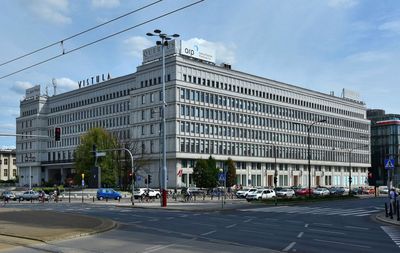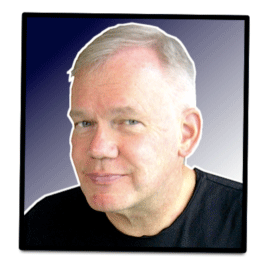European Diary: Warsaw, November 2023
 Probably no major European city illustrates as well the ravages of recent European history as Warsaw, the capital of Poland. Originally a small fishing town on the Vistula River, it was the capital of the vast Polish-Lithuanian Commonwealth from the late sixteenth century until 1795 when Poland ceased to exist as an independent country, infamously having been partitioned thrice by her neighbours, Prussia, Russia, and Austria. In late nineteenth century the city nevertheless prospered and became known for its fine architecture and broad boulevards: It was even called the ‘Paris of the North’. It was then the capital of the semi-autonomous Kingdom of Poland under Russian rule, and the third-largest city of the Romanov Empire, after St. Petersburg and Moscow. In 1918 Warsaw became the capital of the new Republic of Poland and continued to flourish. However, in the battles following the Nazi invasion of Poland on 1 September 1939, large parts of the city were destroyed. Responding to the attack, the United Kingdom and France declared war on Nazi Germany, as they were obliged to do under treatises with Poland, but they did not declare war on the Soviet Union which invaded Poland from the east on 17 September, completing the fourth partition of Poland. In 1944, it was clear that Nazi Germany was losing the war. In July, Stalin’s Red Army was approaching the Vistula River. The Polish resistance movement decided to rise up. But then Stalin ordered his army to halt on the eastern bank of Vistula, giving the Nazis opportunity brutally to suppress the uprising. The Poles fought valiantly, retreating into any hidden nook and cranny of the city and even hiding in its sewage system. Enraged, Hitler ordered the city to be razed to the ground. Only about 15 per cent of Warsaw survived.
Probably no major European city illustrates as well the ravages of recent European history as Warsaw, the capital of Poland. Originally a small fishing town on the Vistula River, it was the capital of the vast Polish-Lithuanian Commonwealth from the late sixteenth century until 1795 when Poland ceased to exist as an independent country, infamously having been partitioned thrice by her neighbours, Prussia, Russia, and Austria. In late nineteenth century the city nevertheless prospered and became known for its fine architecture and broad boulevards: It was even called the ‘Paris of the North’. It was then the capital of the semi-autonomous Kingdom of Poland under Russian rule, and the third-largest city of the Romanov Empire, after St. Petersburg and Moscow. In 1918 Warsaw became the capital of the new Republic of Poland and continued to flourish. However, in the battles following the Nazi invasion of Poland on 1 September 1939, large parts of the city were destroyed. Responding to the attack, the United Kingdom and France declared war on Nazi Germany, as they were obliged to do under treatises with Poland, but they did not declare war on the Soviet Union which invaded Poland from the east on 17 September, completing the fourth partition of Poland. In 1944, it was clear that Nazi Germany was losing the war. In July, Stalin’s Red Army was approaching the Vistula River. The Polish resistance movement decided to rise up. But then Stalin ordered his army to halt on the eastern bank of Vistula, giving the Nazis opportunity brutally to suppress the uprising. The Poles fought valiantly, retreating into any hidden nook and cranny of the city and even hiding in its sewage system. Enraged, Hitler ordered the city to be razed to the ground. Only about 15 per cent of Warsaw survived.
The 1944 Rising Museum
As Polish soldiers desperately fought for their lives, from house to house, the Red Army passively looked on from the eastern bank of the Vistula River. This was, according to Anglo-Hungarian novelist Arthur Koestler ‘one of the major infamies of this war’. Stalin did not want any potential challenges to the communist puppet government he intended to install in Poland after the war. He encouraged Hitler to destroy all such challenges. There is in Warsaw a magnificent museum devoted to the tragic 1944 Rising, very moving, even haunting. Its deputy director, Dr. Pawel Ukielski, is a friend of mine: He has lectured in Iceland on my invitation, and I have had the pleasure to visit him and his lovely family at their home in Warsaw. We are both active in the Platform of European Memory and Conscience which seeks justice for the many victims of totalitarianism in Europe.
Perhaps it is at least poetic justice that the enormous headquarters of the Polish Communist Party in the city centre were after the collapse of communism taken over by the Warsaw Stock Exchange which used it until 2000. Now the building complex (depicted above) is a commercial centre, and one of the businesses located there is the Freedom Lounge, run by the free-market Warsaw Enterprise Institute, a bar, a restaurant and a meeting venue. The cocktails served at the Lounge are named after leading classical liberal thinkers and leaders such as Ludwig von Mises, Ayn Rand and Margaret Thatcher.
Inspired by Friedman and Hayek
It was at the Freedom Lounge on 2 November 2021 that I presented my book in two volumes on Twenty-Four Conservative-Liberal Thinkers, in a panel with Marek Tatała from the Economic Freedom Foundation and Sebastian Stodolak from the Warsaw Enterprise Institute. Stodolak also interviewed me for the Polish newspaper Dziennik Gazeta Prawna and recorded a podcast with me. In my introductory talk, I pointed out that in the chapter on Milton Friedman in the second volume of my book there is a brief account of the rapid and successful process in which the Poles and other Central and Eastern European nations, inspired not least by Friedman and Friedrich von Hayek, returned to normalcy in the 1990s, after having had socialism forcibly imposed on them for more than forty years.
The Free-Market Solution of Environmental Problems
In the lively discussion at the Freedom Lounge following my introductory talk I emphasised that environmental problems usually were caused not by capitalism but by the absence of private property rights. Elephants in Africa were endangered because there were no owners to care for them, whereas privately-owned sheep in Iceland were plentiful. In just one stroke of the pen African poachers could be turned into gamekeepers if their communities would be given property rights to the elephant stocks. The same applied to polluted lakes and overfished rivers: Environmental protection required protectors who had a private and personal interest in the maximum long-term profitability of natural resources, be they land, fish stocks, oil wells, rivers, lakes or forests. In the case of the environment, as elsewhere, the best remedy for freedom was more freedom.
Why Iceland Crashed in 2008
Asked about the 2008 bank collapse in Iceland, I pointed out that at the time the assets of the Icelandic banks were probably as good (or bad) on average as the assets of banks in neighbouring countries, although the Icelandic bankers should have been more cautious in expanding their activities. The difference was that Iceland was denied the liquidity assistance from the U. S. Federal Reserve Board which the Scandinavian countries and Switzerland received, enabling those countries to rescue banks which otherwise would have gone under, such as Danske Bank in Denmark and UBS in Switzerland. Moreover, the British government, led by Prime Minister Gordon Brown and Chancellor Alistair Darling, closed down Icelandic-owned British banks at the same time as they rescued all other banks in the United Kingdom, invoking moreover an anti-terrorism law against Iceland, a longtime friend and ally with no military of her own. Their unprecedented action was, I suggested, motivated by their desire to demonstrate to their Scottish voters the perils of independence. Iceland’s rapid recovery after the collapse bore however witness to the soundness of the comprehensive liberalisation of the economy in 1991–2004.
(The Conservative, 26 November 2023.)


Rita ummæli